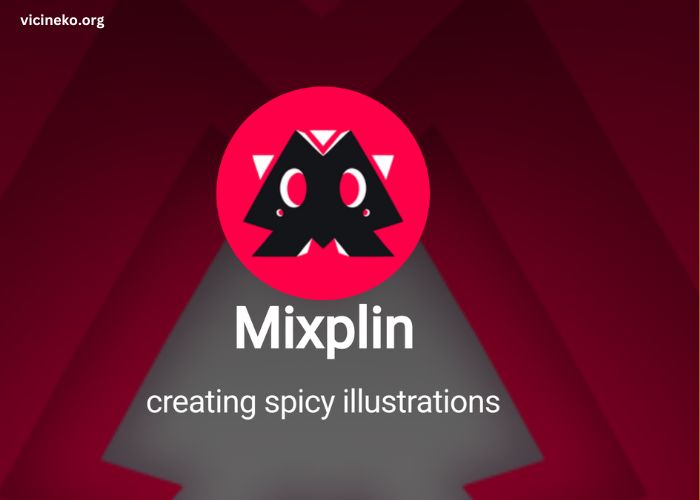In recent years, health and wellness have become more than just a priority; they are a lifestyle. As we navigate through a rapidly changing world, new health trends are emerging every day. From cutting-edge fitness routines to innovative nutritional science, it’s essential to stay informed about the latest developments. Whether you’re looking to improve your physical fitness, boost your mental clarity, or optimize your overall health, this article will provide you with the latest health trends you need to know.
Why Staying Updated on Health Trends is Crucial
Health trends evolve constantly, with new discoveries and technologies advancing at an unprecedented pace. Staying updated on these trends helps you:
- Make informed decisions about your health and wellness.
- Adapt to emerging treatments, diets, and workout regimens.
- Maximize your results in maintaining or improving your health.
- Discover more effective and natural ways to prevent disease.
From the food you eat to the way you exercise, and even your mental health practices, being aware of these shifts can offer significant advantages. Let’s dive into some of the most exciting health trends today.
1. Personalized Nutrition
The Rise of DNA-Based Diets
One of the most exciting advancements in the field of nutrition is the growing popularity of personalized nutrition. This trend is based on the idea that every individual has unique dietary needs, determined by factors like genetics, metabolism, and gut microbiota.
Through DNA testing and other advanced diagnostics, personalized nutrition takes a more scientific approach to diet planning. Services and apps are now available that analyze your genetic makeup and offer tailored meal plans to help optimize your health. These personalized programs can guide you in selecting the right foods to improve your energy, prevent chronic diseases, and even manage weight more effectively.
Gut Health and Microbiome Testing
Another important trend in personalized nutrition is the growing focus on gut health. Research has shown that a healthy gut microbiome is key to overall well-being, influencing digestion, immunity, mental health, and even skin appearance. Gut microbiome testing allows individuals to better understand their gut health and make diet adjustments that promote balance and optimal function.
2. Plant-Based and Alternative Diets
The Surge in Plant-Based Eating
The plant-based eating trend continues to dominate, with more people turning to vegetarian, vegan, and flexitarian diets. This shift is driven by a combination of health concerns, environmental awareness, and ethical considerations. Research suggests that plant-based diets can reduce the risk of chronic diseases such as heart disease, diabetes, and certain cancers.
A plant-based diet focuses on whole grains, fruits, vegetables, legumes, nuts, and seeds. Many people are opting to reduce or eliminate animal products entirely to improve their overall health. Whether through whole food plant-based diets or plant-based versions of meat and dairy products, the variety and accessibility of plant-based options continue to grow.
Alternative Proteins: Beyond Meat
With the increased interest in plant-based eating, alternative proteins like Beyond Meat and Impossible Foods are gaining popularity. These plant-based meat substitutes replicate the taste and texture of animal meat, making them a viable option for those looking to reduce their animal product consumption without sacrificing flavor or protein intake.
As these companies continue to innovate, the market for alternative proteins is expected to grow, allowing more options for those seeking meat-free meals.
3. Functional Foods and Supplements
Superfoods and Adaptogens
Superfoods like chia seeds, kale, and blueberries have long been celebrated for their health benefits. However, the latest health trend includes a growing interest in “functional foods”—foods that provide specific health benefits beyond basic nutrition.
Adaptogens, for example, are a class of herbs and plants believed to help the body cope with stress, anxiety, and fatigue. Ashwagandha, Rhodiola, and Holy Basil are just a few adaptogens that are gaining popularity for their ability to balance hormones and improve resilience.
Incorporating these superfoods and adaptogens into your diet is a simple way to boost overall health, reduce inflammation, and protect the body from oxidative stress.
Personalized Supplements
In addition to functional foods, personalized supplements are becoming a popular choice for health-conscious individuals. Through testing, individuals can now identify specific nutrient deficiencies and select supplements designed to meet their individual needs. Whether it’s boosting Vitamin D, optimizing magnesium levels, or supporting joint health with collagen peptides, personalized supplements offer a more targeted approach to wellness.
4. Biohacking and Optimizing Performance
Intermittent Fasting
Intermittent fasting (IF) is a growing trend that involves alternating between periods of eating and fasting. Various methods of intermittent fasting, such as the 16/8 method (16 hours of fasting, 8 hours of eating), are gaining popularity for their health benefits. Research suggests that intermittent fasting can support weight loss, improve metabolism, and enhance mental clarity.
Intermittent fasting is not just about food timing; it’s also seen as a way to reset the body, improve energy, and even increase longevity.
Sleep Optimization and Wearables
Sleep is one of the most vital aspects of our health, yet it’s often overlooked. The growing interest in sleep optimization is a direct response to the increasing awareness of its impact on mental and physical well-being. In particular, wearable devices that track sleep cycles and quality, such as the Oura Ring or WHOOP Strap, have gained popularity.
These devices monitor various metrics such as heart rate, body temperature, and movement during sleep, providing actionable insights that help individuals improve their sleep hygiene. Proper rest is essential for recovery, cognitive function, and overall health.
Neurotechnology for Mental Clarity
The use of neurotechnology to optimize brain function is another biohacking trend. Devices like Muse, which uses EEG technology to monitor brain activity, are gaining attention as tools for improving focus, meditation, and mental clarity. Brain stimulation and neurofeedback are also being explored as ways to enhance cognitive performance, improve memory, and reduce symptoms of stress and anxiety.
5. Mental Health and Stress Management
Meditation and Mindfulness
As awareness of mental health continues to grow, practices like meditation and mindfulness are becoming mainstream. These techniques are no longer reserved for those seeking spiritual enlightenment but are now widely recognized for their ability to reduce stress, enhance focus, and improve emotional well-being.
Mindfulness apps, such as Calm and Headspace, offer guided meditation sessions, relaxation techniques, and breathing exercises designed to help individuals manage daily stress and anxiety. Incorporating regular meditation into your routine can have profound benefits for mental clarity, emotional regulation, and overall happiness.
The Role of Nature in Mental Health
Spending time in nature has long been shown to improve mental health, and the trend of “forest bathing” or “ecotherapy” has recently gained traction. Research suggests that exposure to natural environments can lower stress levels, improve mood, and even increase cognitive function.
Many individuals are now incorporating outdoor activities like hiking, gardening, and simply spending time in green spaces to boost mental well-being.
6. Fitness Trends and Innovation
Smart Fitness Devices
Technology continues to revolutionize the fitness industry. From smart workout equipment to fitness tracking apps, the integration of technology into fitness routines is one of the biggest trends in 2025. Devices like Peloton, Tonal, and Mirror allow individuals to engage in interactive workouts from the comfort of their own homes, providing access to a variety of fitness classes and programs.
Additionally, smart wearables like fitness trackers and heart rate monitors give users real-time insights into their performance, helping them optimize their workouts and track progress more effectively.
Recovery and Mobility Practices
Recovery is becoming a focal point of modern fitness trends, with more attention being paid to methods like foam rolling, cryotherapy, and infrared saunas. As people push their bodies harder with intense training, recovery is essential to avoid burnout and prevent injury.
Mobility practices, such as yoga and Pilates, are also gaining popularity for improving flexibility, balance, and posture. These exercises promote the proper alignment of the body and help reduce the risk of injury while increasing strength and endurance.
Conclusion
The latest health trends offer exciting insights into how we can optimize our physical, mental, and emotional well-being. From personalized nutrition to biohacking techniques and mental health practices, these trends provide new opportunities to improve health in a more tailored and holistic way. As technology continues to evolve and more research emerges, the future of health and wellness looks brighter than ever.
Staying informed about these trends can help you make smarter choices about your health and well-being. Whether you’re looking to improve your diet, enhance your fitness routine, or optimize your mental clarity, the latest health trends offer a wealth of tools and strategies to elevate your lifestyle.
By embracing these innovations, you can not only feel better but live longer, healthier, and more fulfilled.





